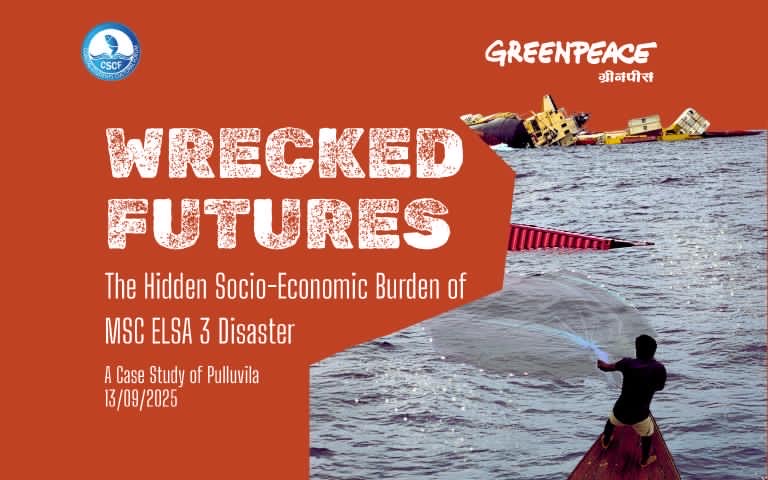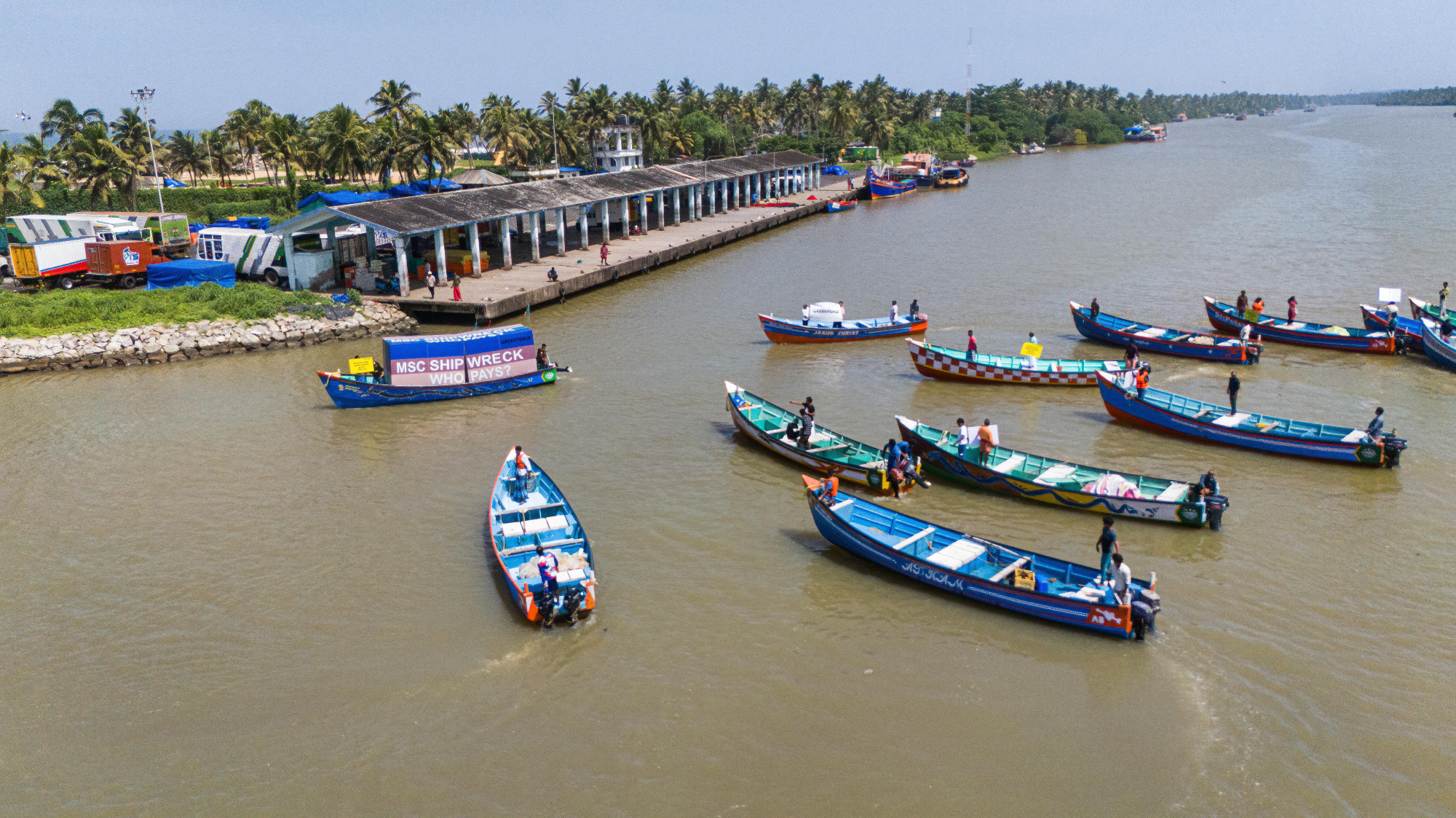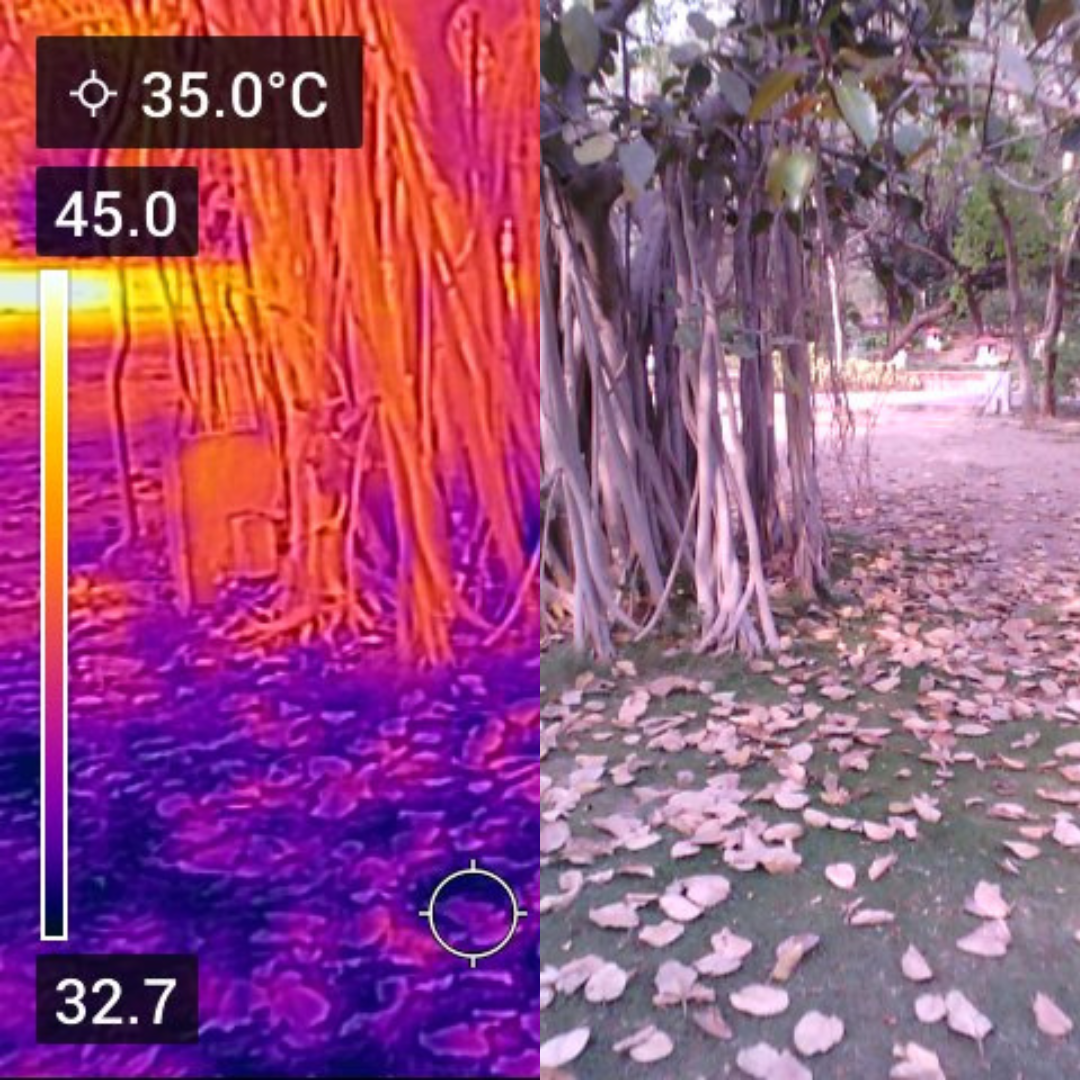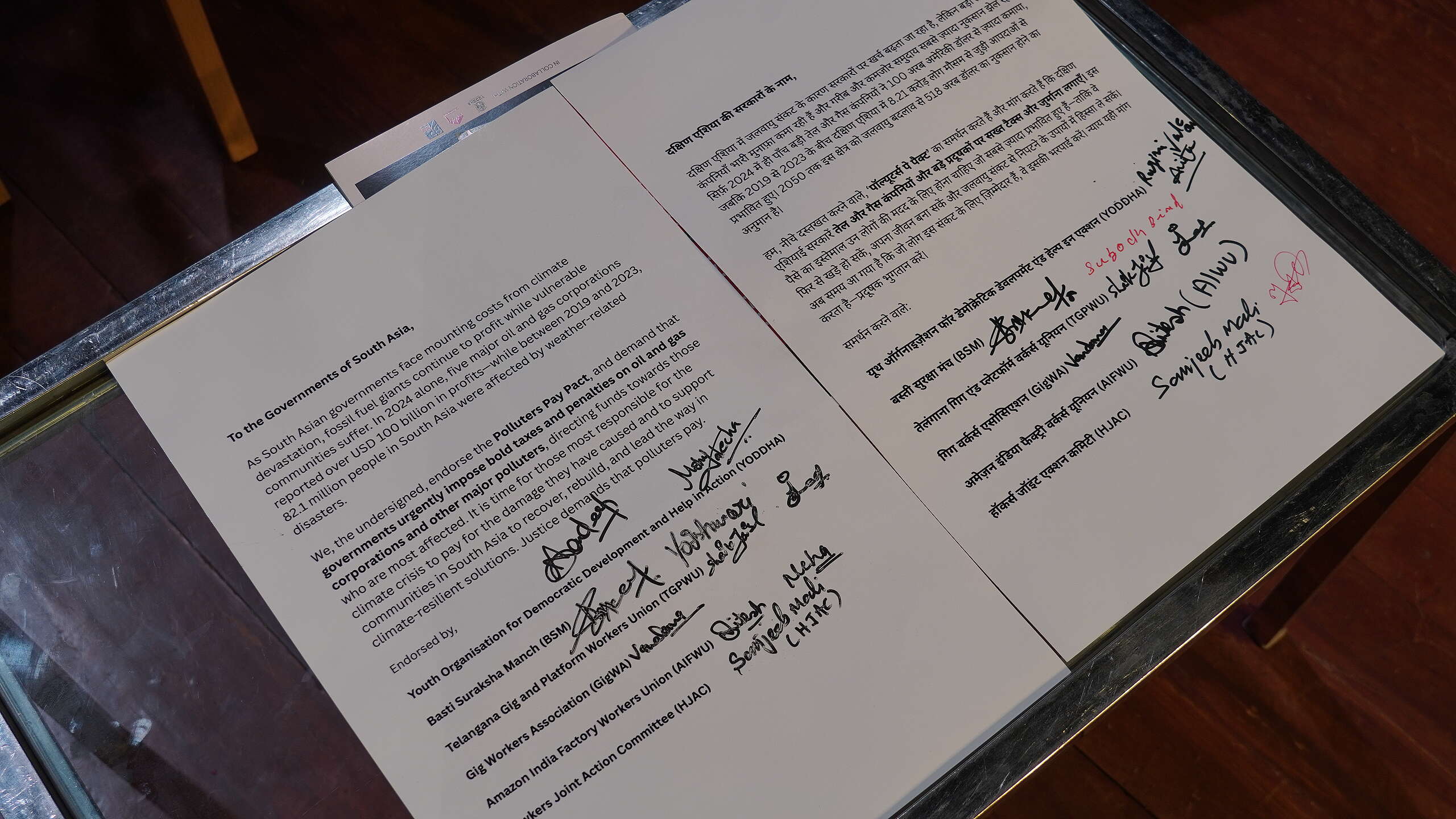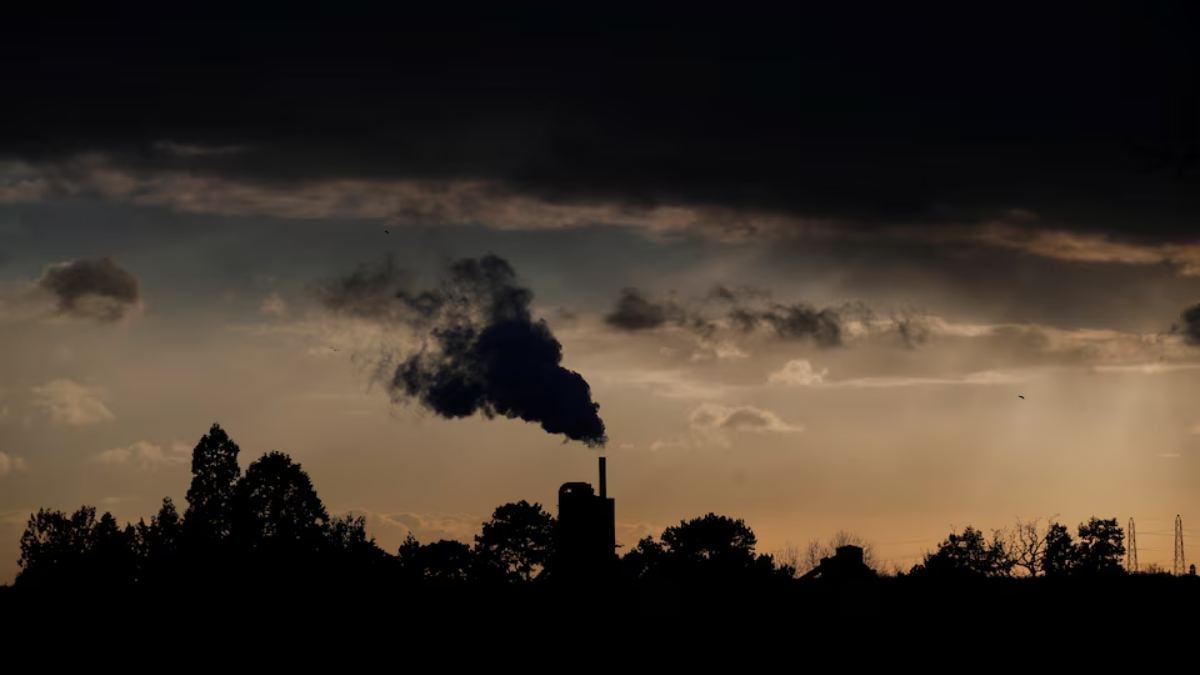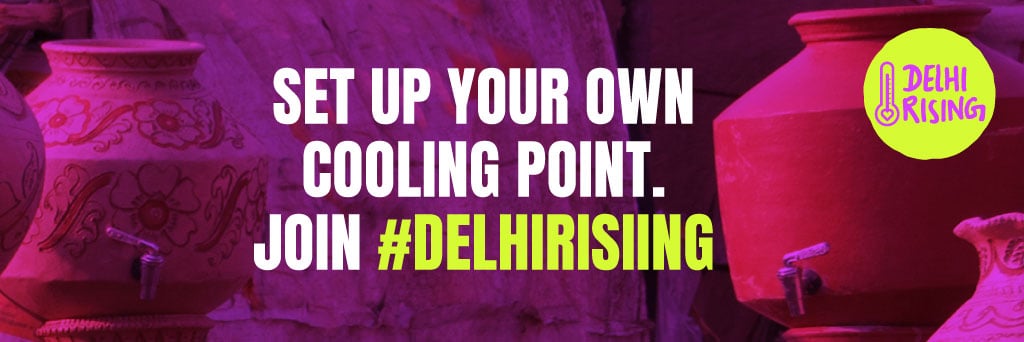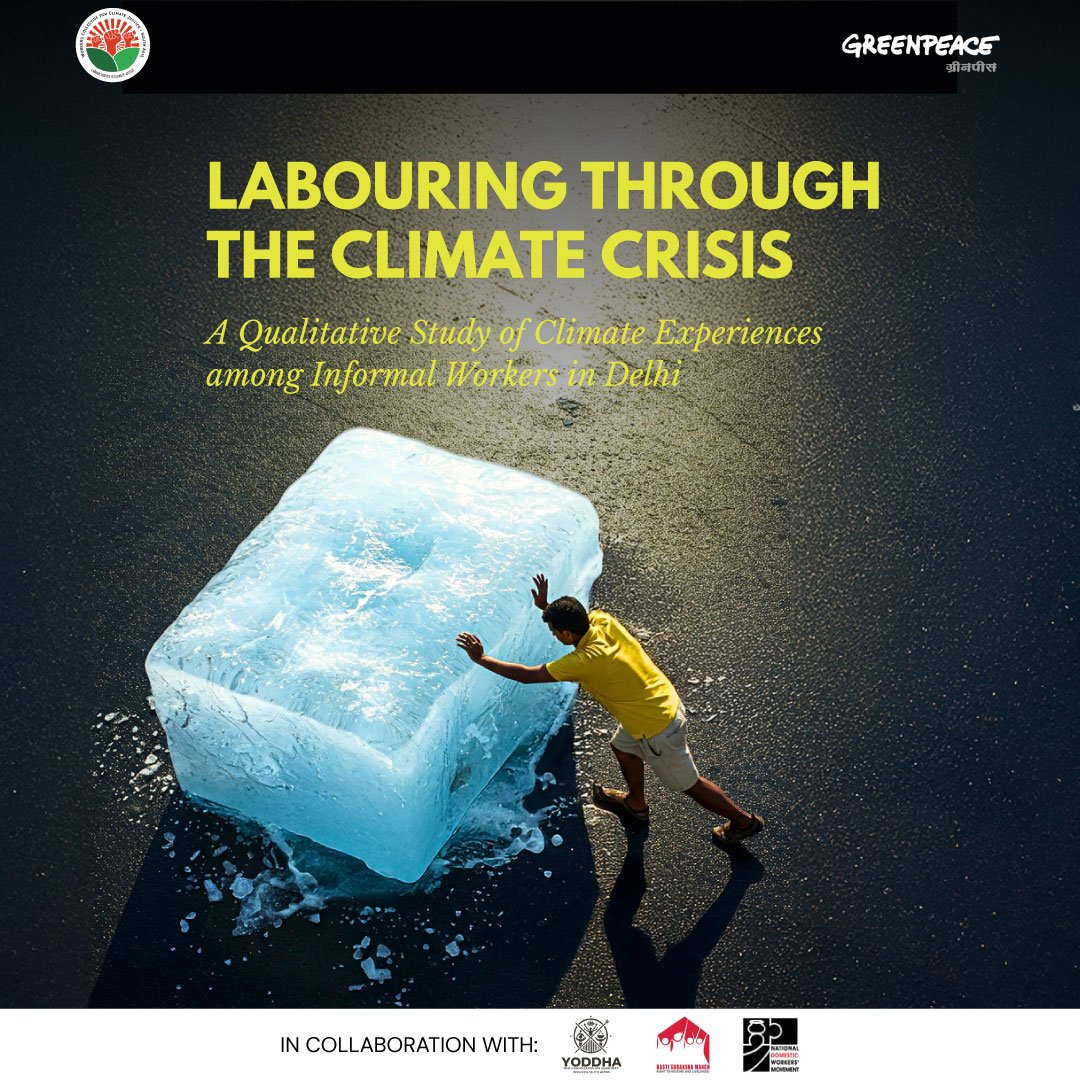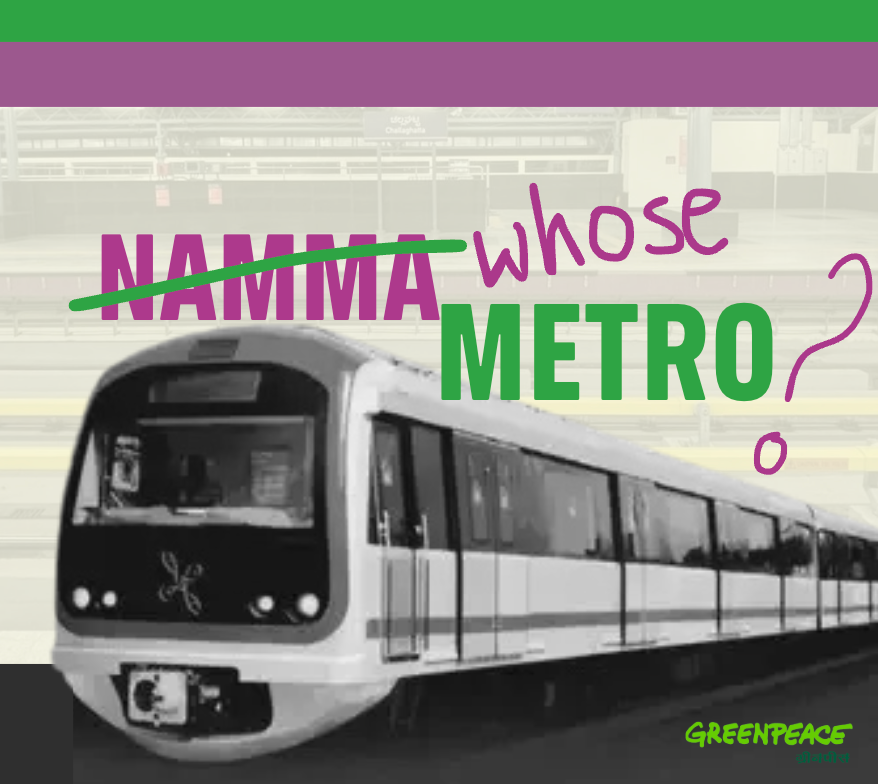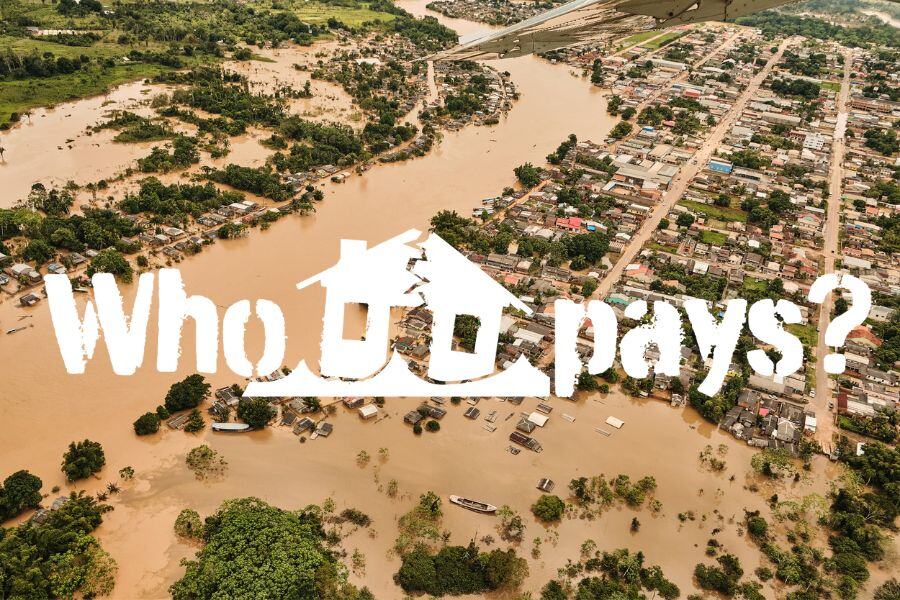Filtered results
-
MSC ELSA 3 Shipwreck: Fishworkers Demand State Govt Intervention in Compensation Claims Process
Kochi, 19 September 2025 – Fishworkers impacted by the MSC ELSA 3 shipwreck demand the Kerala government to urgently set up a robust, accessible claim process that will enable them…
-
Civil Society Calls on MSC to Pay for Damage, Ensure Transparent Compensation and Immediate Clean-Up Support
Thiruvananthapuram, July 28th 2025: In a press conference held today in Thiruvananthapuram, Kerala, Greenpeace India along with environmental groups, legal experts, and fishworker unions released a comprehensive white paper outlining…
-
Delhi Parks 10°C Cooler, But 8 out of 10 parks Lack Water, Gates Shut in Heat
Delhi, 12 July, 2025: A recent audit of 50 parks across Delhi has revealed stark contrasts in surface temperatures – with shaded green areas being up to 20°C cooler in…
-
Labour, Climate, and Solidarity: A May Day to Remember
This May Day wasn’t just about reflecting on the struggles of workers—it was about shaping the future of labour and climate justice, together.
-
8 out of 10 Indian support taxing oil and gas corporations to pay for climate damages, global survey finds
New Delhi, 19 June 2025 – A global survey shows a strong support for holding fossil fuel companies accountable for environmental damage. 80% Indian respondents believe the fossil fuel corporations…
-
Mini series: The story of Hydration Hero Rahim
Rahim works as a gig worker. He is no stranger to Kabristan Road, Seemapuri. This is the area where people sort waste regularly. More than 50 men and women work…
-
Set up your own Cooling Point. Join #DelhiRising
Heat doesn’t discriminate, but relief often does. As temperatures soar across the city, community-driven cooling points are becoming a vital lifeline. Whether you’re a resident group, youth collective, school, or…
-
Worker groups demand polluters pay for lost income, amid deadly South Asia heatwave
New Delhi, 01 May 2025 – As a life-threatening heat wave unravels in South Asia, more than 10 groups representing at lakhs of workers across Indian, Sri Lanka, Bangladesh and…
-
Letter to BMRCL to rollback Namma Metro Fare-Hike
Letter to BMRCL to rollback Namma Metro Fare-Hike
-
Who pays for the damage from extreme weather?
Most of us can agree that it is not fair for those least responsible to pay the biggest price; but the reality is that the biggest polluters are currently paying…

